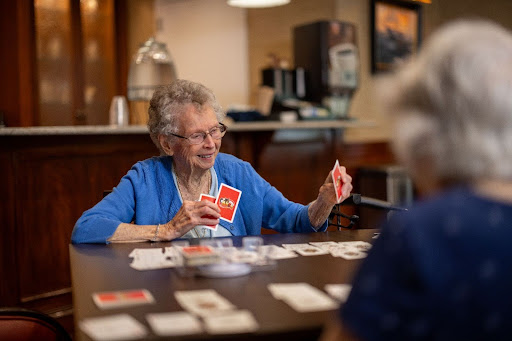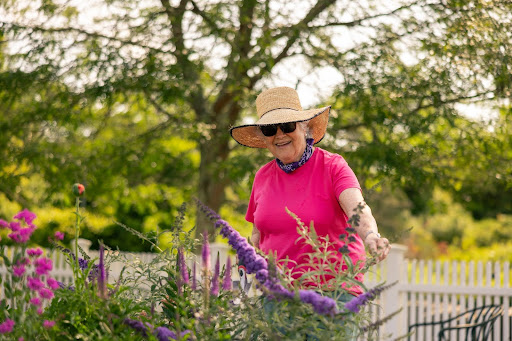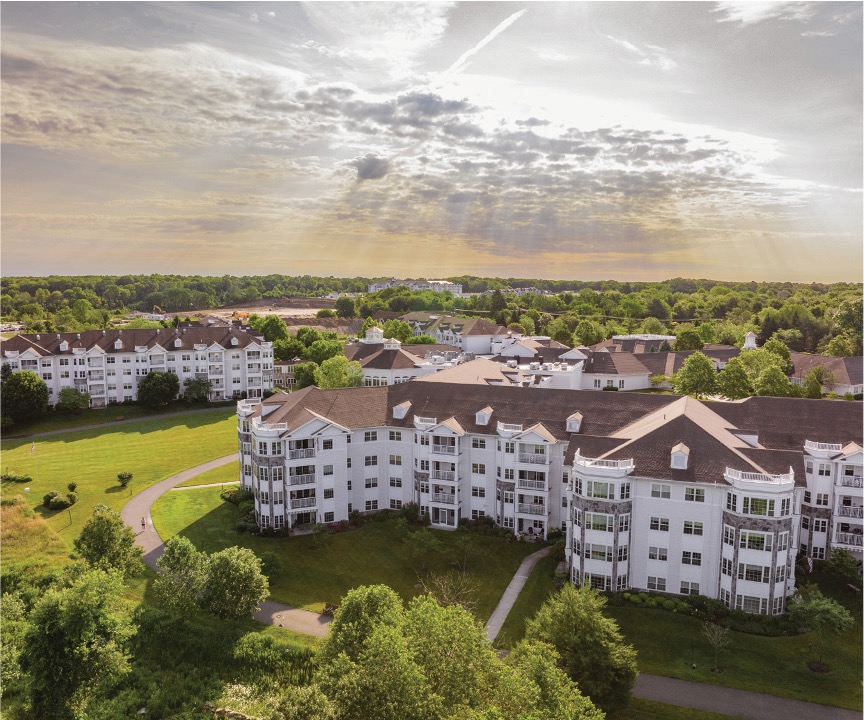
Contact
New Year, New You: New Year’s Resolutions for Seniors
Each year, millions of Americans commit to changing something in the New Year, like losing a few pounds, spending less time on social media, or simply enjoying life more. But more than half of New Year’s resolutions for seniors made in January fail by February.
How can you improve your chances of successfully achieving your goals? To start with, pick something that really matters to you. If changing a behavior has actual value for you, you’re more likely to stay the course. Once you’ve landed on a resolution that’s meaningful to you, follow these tips to pave the way to your New Year’s goals:
- Be specific. Instead of vaguely saying you want to lose weight, be clear about how much weight you want to lose and when you want to reach that goal. For example, “I’m going to lose five pounds in the next two months.”
- Track your progress. Keep a journal or use an app designed to track your progress and keep you motivated.
- Make it doable. Keep your goals realistic and achievable. Trying to take too big a step too fast will only leave you frustrated. Give yourself time to reach the finish line with lots of smaller intermediate goals along the way.
- Share your goal. Tell others about your plan and ask them to hold you accountable. It could be a friend, an affinity group or connections on social media. Making your goal public can make you feel like you have a community supporting you on your path to success.
- Stay positive. Don’t beat yourself up over a lapse or temporary failure to stick to your plan. Be kind to yourself. Everyone stumbles. Start fresh and tell yourself “you can do this.”
Our Top New Year’s Resolutions for a Healthier, Happier You.
To help older adults become and stay healthy, the American Geriatrics Society recommends 10 New Year’s resolutions for seniors. We’ve picked our top five for a healthy, happy 2021.
1. Exercise Every Day
Regular exercise is important for your physical and mental health. It can help you continue to do the things you enjoy and stay independent as you age. In addition, regular exercise can reduce the risk of developing some diseases and disabilities that develop as we grow older, such as heart disease, stroke, diabetes and cancer. Physical activity also reduces stress — just what we need during these uncertain times.
To get started on an exercise plan, write down your short-term goals, and focus on where you want to be in six months, a year, or two years from now. Include activities you enjoy. If you like the outdoors, try biking, hiking or gardening. Make it social by joining a walking club at your local mall, or an exercise class at your local community center. Yoga, tai chi, water aerobics, dancing and bowling are just some of the ways to make fitness fun. And don’t let the cold weather stop you. Read our blog post for tips on how to stay active this winter.
2. Get More Sleep
Depriving yourself of the recommended eight hours of sleep each night has serious health consequences. It reduces the effectiveness of your immune system; increases the risk of Alzheimer’s disease, diabetes and cardiovascular disease; triggers hormones that make you feel hungry (even when you’re full); and generally makes you feel dull and forgetful. It’s no way to go through your day. So get a good night’s rest. You’ll wake up feeling refreshed, sharp of mind and ready to take on the day.
If you’re having trouble sleeping at night, avoid large meals and alcoholic drinks late at night; try to exercise most days but not later than two to three hours before bedtime; don’t take naps after 3 p.m.; and go to bed and wake up at the same time each day. For more tips on getting a good night’s sleep, visit the National Sleep Foundation website.
3. Eat Healthier
As you grow older, your body doesn’t burn up as many calories as it used to because your metabolism slows down as you age. That means eating less, but eating better, to maintain a healthy weight. The USDA’s Choose My Plate program, and your healthcare provider, can help you make good choices. They include eating plenty of vegetables and fruits; choosing healthier sources of protein such as beans, chicken and fish; substituting whole grains for refined grain carbohydrates; replacing saturated and trans fats with unsaturated fats; and using alcohol in moderation.
4. Keep Your Mind Engaged
Your brain is like a muscle — you need to use it or you lose it. There are many things you can do to keep your brain in shape, such as doing crossword puzzles, reading, playing cards, listening to podcasts, taking or teaching a class, learning a new skill or hobby, or volunteering.
Some scientists have argued that such activities may protect the brain by establishing “cognitive reserve.” They may help the brain become more adaptable in some mental functions so it can compensate for age-related brain changes and health conditions that affect the brain. Socializing also gives your brain a boost, so consider joining a group focused on a hobby you enjoy.
5. Nurture Your Relationships
Humans are hard-wired for connection. It makes us happy and drives away despair. So be a good friend. Listen when someone close to you needs to talk. Give back to the group you are part of. Play with your friends, whether it’s a game of cards, a round of golf or fetch with your dog. You could also volunteer for a group or cause you’re interested in. Check with schools in your area to see if they offer opportunities for mentoring students. Museums, parks and food banks may also offer possibilities for volunteering your time and talent.
Nurturing relationships can be just as important to your health and well-being as nutrition and physical activity. Maintaining a strong social network may even contribute to a longer, healthier life. To learn how a Life Plan Community like StoneRidge helps nurture relationships and improve social wellness, check out our blog post on the importance of socializing for seniors.
We’re Committed to a Healthier Way of Life Every Day of the Year
At StoneRidge, residents have a wealth of opportunities for improving overall wellness. From personalized fitness programs and healthy food choices to fun social events and special interest clubs, there’s always something to engage mind, body and spirit. To learn more about how we can make your New Year something to celebrate, get in touch. We can arrange an in-person or virtual appointment, whichever suits you best.





